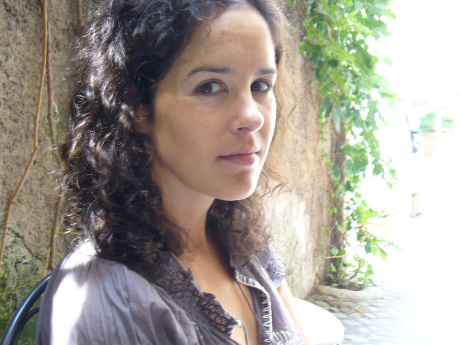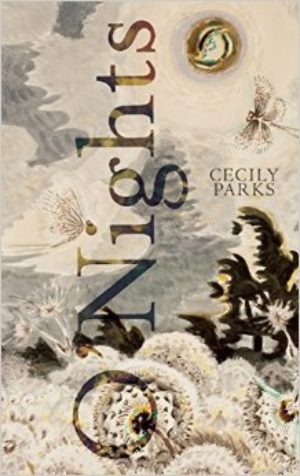In Their Own Words
Cecily Parks on “The Hospital at the End of the Forest”

The Hospital at the End of the Forest
The roosters describe all
candlelit night the luck that hoards itself
in baskets of yellow apples and in
the murky foliage of the hospital arbor under
which the mothers gaze through the pane
love glazes between the body and the body
in sickness their breathing a prescription
for the lungs leafing inside the newborn bodies
that cry because of crying
they can be certain as certain as the green ridge
that fires a sunrise in whose light
I love no one harder than the doctor
beside me and though I believe in medicine and in
the unstructured sweetness
of the summer tanagers I most believe
that he and I went through separate
successions of illnesses and orchards to alight
at this hospital at forest-end where mothers
say nothing under the riffling ceiling
of vines wafting their leafing
through the library where a textbook
of extraordinary diseases scares me past
speculation into the inevitable suspicion
that when my body smashes itself to smithereens
and what mind remains bears witness
to the path we broke through our particular trees
there will be confusions
of wings and applelight and though
I'll not know then what my body moves toward
I'll know our bodies were here now
touching sometimes
in the evenings the roosters make known.
All rights reserved. Reprinted with the permission of the author.
On "The Hospital at the End of the Forest"
A few years ago, my partner and I spent a month volunteering at Hospital San Carlos, a rural hospital in Chiapas, Mexico. A medical student at the time, my partner saw patients both in the hospital and in the indigenous communities in the surrounding jungle that were reachable only by foot. I spent my time helping Lupita, one of the elderly nuns who ran the hospital, write grants for new hospital beds, stethoscopes, ultrasound Dopplers, and other medical equipment.
When I was not with Lupita, I walked in the open-air courtyard of the hospital, nodding Buenos días or Buenas tardes to the white-coated doctors and white-wimpled nuns. Of the patients I saw in the courtyard, I was most curious about the indigenous women who'd come—often on foot—to the hospital to give birth. One mother sat on a bench under an arbor of insurgent bougainvillea and quietly held her child. Another mother wore a black Zapatista bandana that covered her nose and mouth. When I went up to the hospital library, a small many-windowed room where I sometimes wrote, I could almost always hear babies crying.
In the library, I kept returning to a medical textbook whose photographs of extraordinary skin diseases graphically assured me of all the possibilities of illness. It's hard not to think of uncertainty in a hospital, but uncertainty began, in my mind, to extend beyond the body to characterize the communities I'd visited, the grants I'd help write, and the relationships I'd cultivated. By postponing ending for thirty-two lines, the one long sentence that composes "The Hospital at the End of the Forest" represents a provisional rebellion against uncertainty. The rebellion is provisional because I've not yet learned to write a poem that doesn't end.



